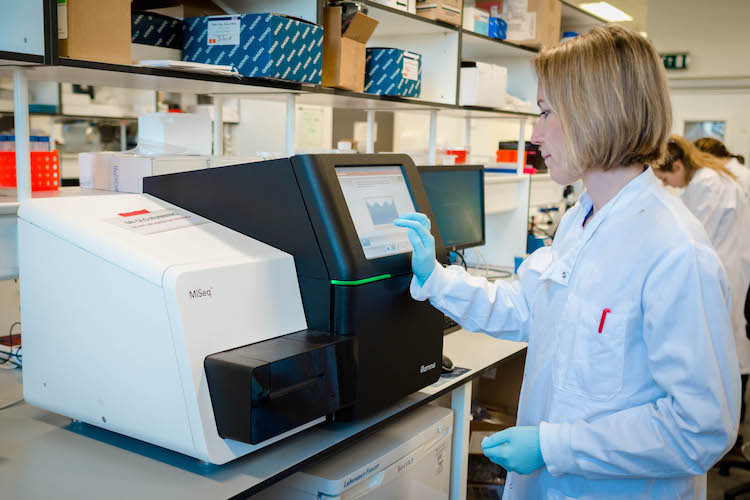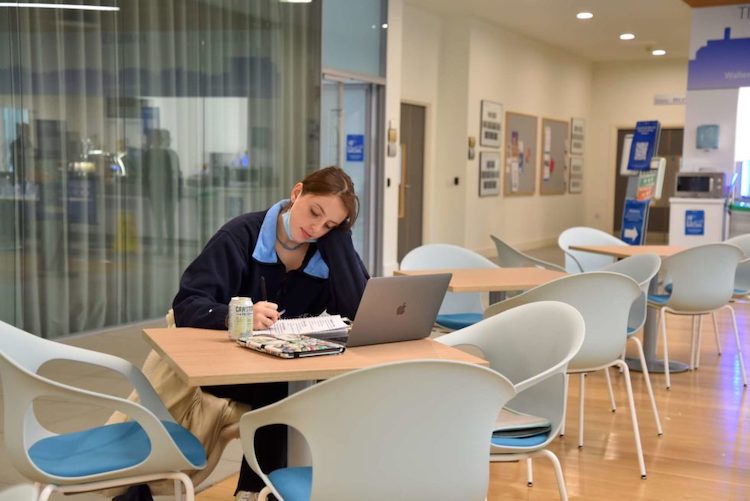Prospective students
Medicine has been taught in the historic Scottish town of St Andrews since 1413.
Today, the School of Medicine offers a range of study options for undergraduate, postgraduate, professional development and PhD students.
Undergraduate courses
BSc Honours programme
A three-year BSc honours degree programme offering an integrated curriculum within a strong clinical context. In addition to exploring the foundations of medical science the programme encourages the development of the professional attitudes, ethical understanding and decision making skills required by the GMC's Outcomes for graduates.
Graduates of the BSc Hons Medicine can progress on to one of the University's partner medical schools to complete their training as a doctor.
MBChB programmes
Undergraduate MBChB programme (5 years)
A five-year MBChB medicine degree programme providing a holistic approach to medical education, emphasising community-based learning and clinical exposure.
Through experiences in diverse healthcare settings, including hospitals and local communities, the programme prepares graduates for modern healthcare practice while emphasising professional attitudes, ethical understanding, and decision-making skills aligned with GMC standards.
ScotGEM Graduate MBChB programme (4 years)
A four-year graduate entry programme capitalising on the existing strengths of medical teaching in the universities of St Andrews and Dundee in collaboration with NHS Fife, NHS Tayside, NHS Highland, NHS Dumfries and Galloway and the University of the Highlands and Islands. This exciting partnership enables the development of a truly distinctive programme.
First and second year will be led by the University of St Andrews, with third and fourth year led by the University of Dundee. On graduation, students will gain a joint degree from both Universities.
Watch a series of short videos about the ScotGEM course on Youtube.

Postgraduate courses
Health Professions Education PGCert, PGDip, MSc
Part-time online
Increasing pressures on healthcare systems require flexible, accessible, creative and relevant learning opportunities, particularly for educators who are also clinically active. On the Health Professions Education programme, you will examine the principles and values of a range of educational approaches.
Health Professions Education PGCert, PGDip, MSc
Health Data Science MSc
Full-time in-person
Healthcare is being transformed by digital technologies and big data analytics. On the MSc in Health Data Science, you will explore the principles and practice of digital health implementation.

Postgraduate research
MSc(Res)
The MSc(Res) is a one-year full-time programme without taught components, which means students do not have to take or pass modules. Instead, students work for a year with a designated
PhD
PhD students at the School of Medicine are involved in scientific research covering a wide range of subjects within the School's four research divisions:
- cellular medicine
- infection and global health
- population and behavioural sciences
- education
Doctorate in Medicine (MD)
Submission of work or undertaking research for a Doctorate in Medicine (MD) degree at the School of Medicine is open to former medical graduates of St Andrews or suitably qualified current staff only.

Short courses
The School of Medicine currently provides a wide range of high quality short courses, covering topics that can be used for professional development, skills revision or professional exam preparation.
The courses range in duration from short, half-day courses to more in-depth 3-4 day long courses.
The school also employs a variety of delivery methods, from completely online, both synchronous and asynchronous, or course dependent, through blended presentations, to purely experiential. Selected courses are run with multiple iterations throughout the year to help fit with attendee workplace restrictions and budgetary cycles.
